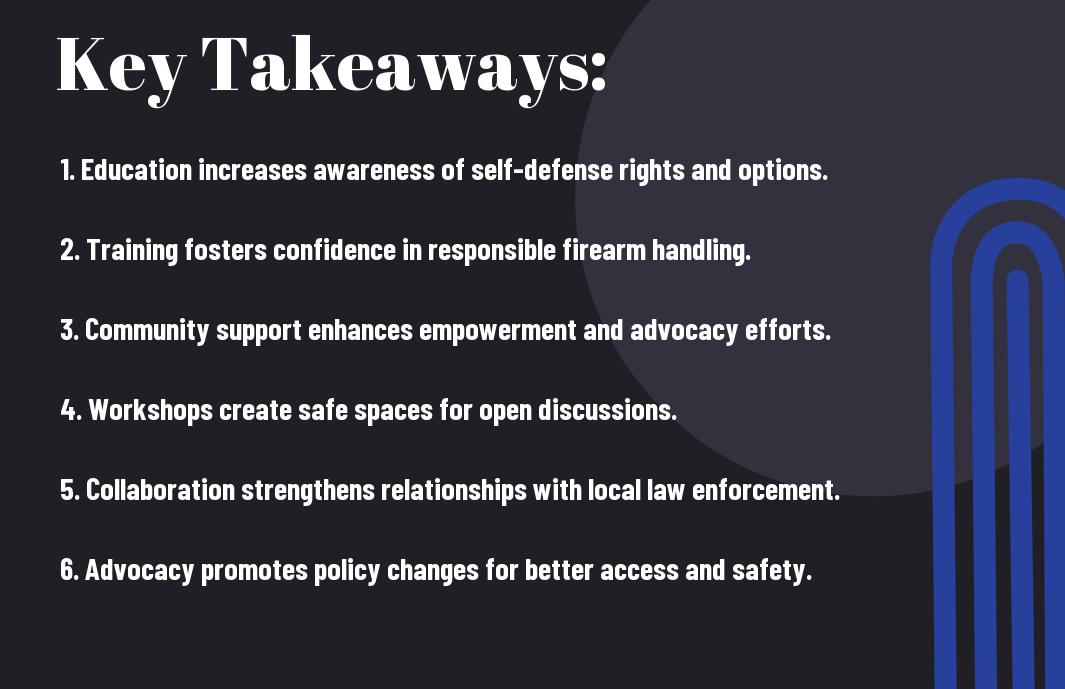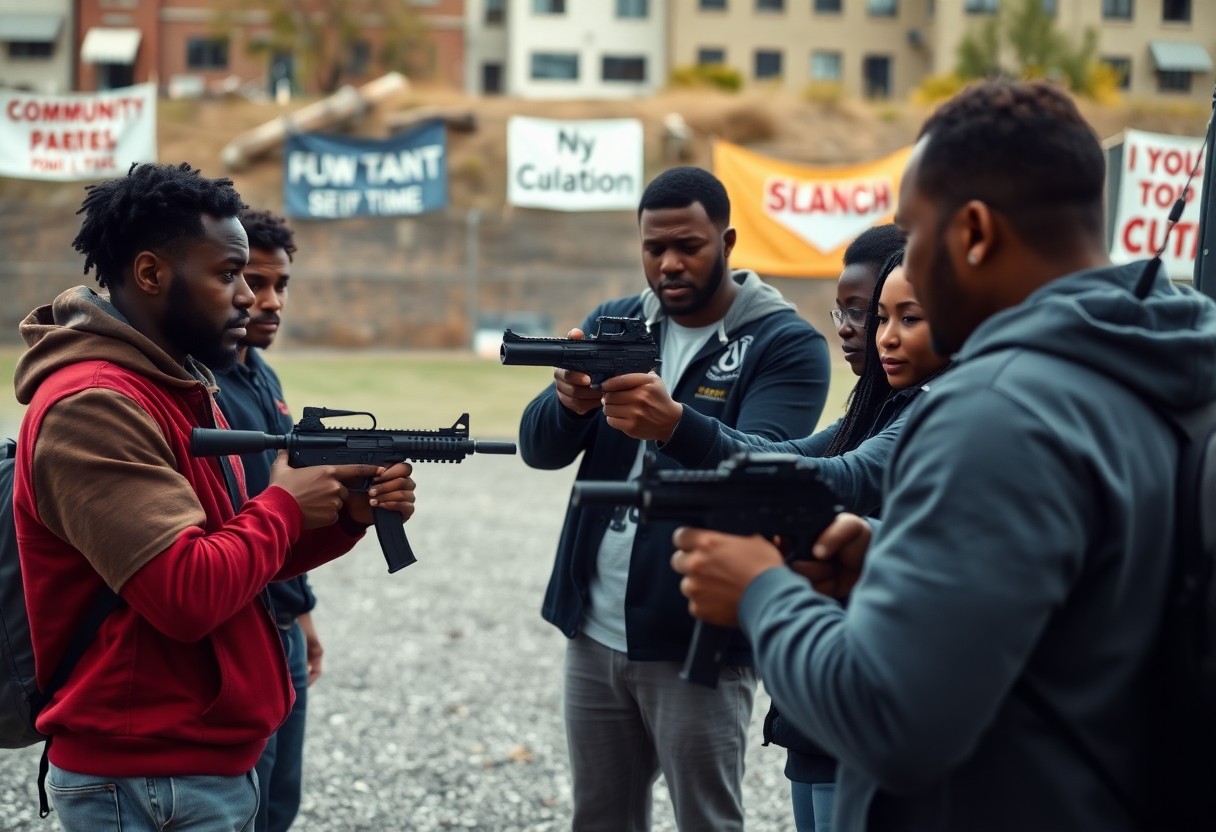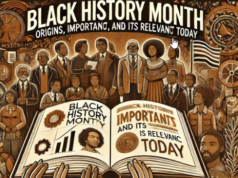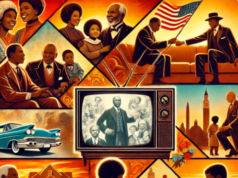Many individuals in Black communities are recognizing the importance of being well-versed in firearms for self-defense. You have the right to protect yourself and your loved ones, and with proper training and advocacy, you can gain the skills and confidence necessary to do so effectively. In this blog post, we will explore how firearms training can empower you and your community, discuss the benefits of responsible gun ownership, and highlight organizations that advocate for safety and education in self-defense.
Key Takeaways:
- Empowerment: Training in firearms enhances self-defense capabilities and promotes personal security within Black communities.
- Advocacy: Engaging in advocacy efforts highlights the importance of responsible gun ownership and addresses systemic issues around gun access and safety.
- Community Building: Educational programs foster solidarity, support networks, and a shared commitment to safety and resilience among community members.

The Importance of Self-Defense in Black Communities
To ensure safety and security, self-defense training plays a vital role in empowering Black communities. Understanding your rights and being equipped to defend yourself can create a sense of agency and confidence. As individuals become more adept in handling firearms and other self-defense techniques, they also contribute to a more informed and resilient community, ready to address challenges and advocate for justice.
Historical Context
Below the surface of modern debates on self-defense lies a historical backdrop steeped in systemic oppression and violence against Black bodies. Historically, Black communities have faced significant threats, prompting a long-standing relationship with self-defense practices. Understanding this context highlights the necessity of empowerment through training and advocacy, empowering you to confront injustices of the past as you prepare for the future.
Modern-Day Implications
Context is shifted by contemporary societal challenges, including increased violence and systemic inequities. In today’s environment, self-defense training not only enhances personal safety but also serves as a tool for community solidarity and resistance against discrimination. This dedication to self-preservation reflects a broader movement toward agency and empowerment, crucial in addressing the evolving dynamics of societal threats.
Implications for Black communities today suggest that self-defense extends beyond individual safety; it embodies a collective stance against ongoing issues of violence and injustice. Engaging in self-defense training fosters resilience, encourages civic involvement, and nurtures a strong network of support among community members. You have the opportunity to take an active role in your safety and the well-being of your community, emphasizing empowerment through education, advocacy, and mutual assistance. By doing so, you help reshape the narrative around self-defense, making it an integral part of cultural and communal growth.
Understanding Firearm Legislation
Some aspects of firearm legislation can be complex and differ significantly from one place to another. It is imperative for you to familiarize yourself with both federal and state laws pertaining to firearms. This knowledge not only helps you understand your rights but also reinforces your responsibilities as a gun owner, ensuring that you navigate the legal landscape with confidence and awareness.
Rights and Responsibilities
Below, it’s important to understand that owning a firearm comes with both rights and responsibilities. You have the right to protect yourself and your loved ones, but this privilege also requires you to comply with laws regarding safe handling, storage, and use of firearms. Being an informed firearm owner means you take accountability for your actions and promote safety within your community.
Navigating Local Laws
Across different jurisdictions, firearm laws can vary widely, and staying informed is key to compliant ownership. It is your responsibility to investigate local regulations, such as restrictions on concealed carry, waiting periods, and required permits. Understanding these nuances not only keeps you within the legal framework but also empowers you to advocate for reasonable legislation in your community.
Even within the same state, counties and cities may have their own specific laws regarding firearms. This can include additional restrictions or required permits that are not present in surrounding areas. By consulting local law enforcement agencies, community educational programs, or legislatives resources, you can gain a clearer understanding of what is expected of you as a firearm owner. Be proactive in ensuring that you are informed about the laws that impact you directly, as this knowledge not only fosters personal safety but also strengthens community advocacy efforts for fair gun laws.
Training and Education
Unlike traditional views that might limit your understanding of firearms, comprehensive training and education empower you to make informed decisions regarding self-defense. Engaging with knowledgeable instructors not only equips you with necessary skills but also fosters a sense of responsibility. By participating in training programs, you gain insights into the legal aspects of firearm ownership and the ways to safely handle and store your firearm, which is vital for your own safety and the safety of those around you.
Firearm Safety Practices
Below are some fundamental firearm safety practices that you should always adhere to. Keeping your firearm unloaded when not in use, treating every firearm as if it were loaded, and ensuring your muzzle is pointed in a safe direction are necessary habits that minimize risk. Additionally, securing your firearm in a safe lock box or safe prevents unauthorized access, particularly from children or untrained individuals, enhancing safety in your home.
Self-Defense Training Programs
Below, you will find various self-defense training programs designed to help you develop the skills necessary for your protection. These programs often include situational awareness training, conflict de-escalation strategies, and hands-on exercises involving the use and handling of firearms. Many organizations focus on creating inclusive environments, encouraging community members to participate, share experiences, and uplift one another.
Safety is a priority in self-defense training programs, as they aim to equip you with more than just technical skills. You will learn how to assess your surroundings and recognize potential threats while being empowered to respond effectively without escalating conflict. Instructors focus on building confidence and physical preparedness, helping you feel more secure in your ability to protect yourself and your loved ones. Engaging in these programs fosters a supportive community that emphasizes shared experiences and collective empowerment.

Building Community Advocacy
Despite the challenges faced by Black communities regarding firearm ownership and self-defense, building advocacy can empower individuals and families. Engaging in open dialogues about firearms and self-defense prepares you to influence local policies and promote safe practices. As you become more informed, you can advocate for your rights and those of your community, fostering a culture of awareness and preparedness.
Grassroots Organizations
Before entering into advocacy, consider connecting with grassroots organizations that focus on firearm education and self-defense training. These groups often provide necessary resources, training sessions, and support tailored specifically for your community’s needs, enhancing your confidence and skills.
Creating Support Networks
By establishing strong support networks, you can create a safe space for discussions about self-defense and firearm education. Engaging with like-minded individuals not only offers emotional support but also strengthens the collective voice advocating for your community’s rights and safety.
Plus, these support networks can act as resource hubs, connecting you to experienced trainers, legal experts, and advocates who understand your unique challenges. Networking within your community enables you to share experiences, strategies, and knowledge, reinforcing your collective power as you navigate the complexities of firearm ownership and self-defense. This collaboration ultimately leads to enhanced safety, informed decision-making, and a stronger stance in advocacy efforts.
Addressing Misconceptions About Firearms
Keep in mind that firearms are often surrounded by misconceptions that can deter individuals from understanding their true role in self-defense. By addressing these myths and promoting accurate information, you can empower your community to make informed decisions regarding firearms and personal safety. Engaging in open conversations about the realities of gun ownership can clarify misunderstandings and foster a more informed dialogue.
Dispelling Myths
Beside the common belief that owning a firearm only increases danger, it’s necessary to unpack the facts. Studies show that responsible firearm ownership, combined with proper training, can significantly enhance your personal safety. Rather than perpetuating fear, it’s important to highlight how firearms can be a tool for protection when used safely and mindfully.
Promoting Safe and Responsible Ownership
Responsible firearm ownership involves understanding safety protocols, proper handling, and secure storage practices. This commitment ensures not only your safety but also the safety of those around you, allowing for a secure environment where self-defense can be effectively exercised.
For instance, educating yourself on safe storage methods—such as using gun safes or locks—can prevent unauthorized access and accidents, especially in households with children. Additionally, participating in training courses designed to teach safe handling and shooting techniques helps you become a more confident and responsible owner. By staying informed and adhering to safety guidelines, you contribute positively to your community’s perception of firearms and reinforce the importance of responsible gun ownership as a means of self-defense.
The Role of Mentorship in Self-Defense
Many individuals in your community can benefit from mentorship programs dedicated to self-defense. By engaging with experienced instructors and advocates, you can gain valuable insights and skills that empower you to protect yourself and your loved ones. Mentorship is not only about learning techniques; it’s about building confidence, fostering resilience, and creating a supportive network that encourages personal growth and responsibility.
Inspiring the Next Generation
For young people, having access to positive role models in self-defense can inspire them to take charge of their safety. By engaging in mentorship, you not only learn skills but also have the opportunity to share your experiences and encourage others. This connection helps cultivate a sense of community and drives the quest for empowerment among youth.
Programs and Initiatives
At the community level, various programs and initiatives are dedicated to providing mentorship in self-defense. These organizations focus on educating individuals about firearms safety, self-defense techniques, and the importance of responsible firearm ownership. Your participation in these programs can build a robust support system that promotes safety awareness and the skilled use of firearms within your community.
The programs often include workshops, training sessions, and mentorship opportunities designed specifically for Black communities. These initiatives not only offer skills training but also create an environment where you can discuss challenges and strategies for overcoming barriers to safety. By focusing on education, advocacy, and community involvement, you can nurture a new generation that understands self-defense not just as a personal necessity but as a collective responsibility.
Conclusion
Summing up, empowering Black communities through firearms training and advocacy not only enhances your ability to protect yourself and your loved ones but also fosters a sense of agency and resilience. By engaging in training, you become part of a larger movement advocating for your rights and safety. This proactive approach enables you to navigate a world that can sometimes be hostile, equipping you with the knowledge and skills needed to advocate for yourself and your community effectively. Embrace this journey toward empowerment, ensuring you have the tools to safeguard your life and advocate for a brighter future.
FAQ
Q: Why is training in firearms for self-defense important for Black communities?
A: Training in firearms for self-defense is vital for Black communities as it promotes personal safety and empowers individuals to take control of their own security. Historical disparities in access to resources often leave these communities vulnerable. By providing training and education on responsible firearm ownership, individuals can build confidence, learn the laws surrounding firearm use, and gain practical skills that enhance their ability to protect themselves and their loved ones. Furthermore, community-based training initiatives can foster solidarity and collective action, promoting broader advocacy for safety and justice within the community.
Q: What specific training programs are available for individuals interested in self-defense?
A: There are various training programs specifically designed for firearms self-defense that cater to individuals from Black communities. These programs typically focus on safe handling, marksmanship, situational awareness, and the legal implications of self-defense. Organizations often offer workshops, mentorship opportunities, and courses taught by experienced instructors from diverse backgrounds who resonate with the community. Additionally, self-defense training may cover unarmed defense techniques, conflict resolution strategies, and psychological preparedness alongside firearms training, fostering a comprehensive approach to personal security.
Q: How does advocacy play a role in promoting responsible firearm ownership in Black communities?
A: Advocacy is integral to promoting responsible firearm ownership in Black communities as it seeks to influence policy, educate the public, and dismantle stereotypes surrounding gun ownership. Advocacy groups work tirelessly to create awareness about the benefits of responsible firearm use and defend the rights of individuals to protect themselves within their communities. They may engage in outreach programs, partner with local leaders, and host community forums to discuss the importance of firearms training, and self-defense tactics and advocate for legislative changes that enhance safety and accessibility to training resources. This collective effort seeks to reshape the narrative around gun ownership and empower individuals to engage positively with the concept of self-defense.








